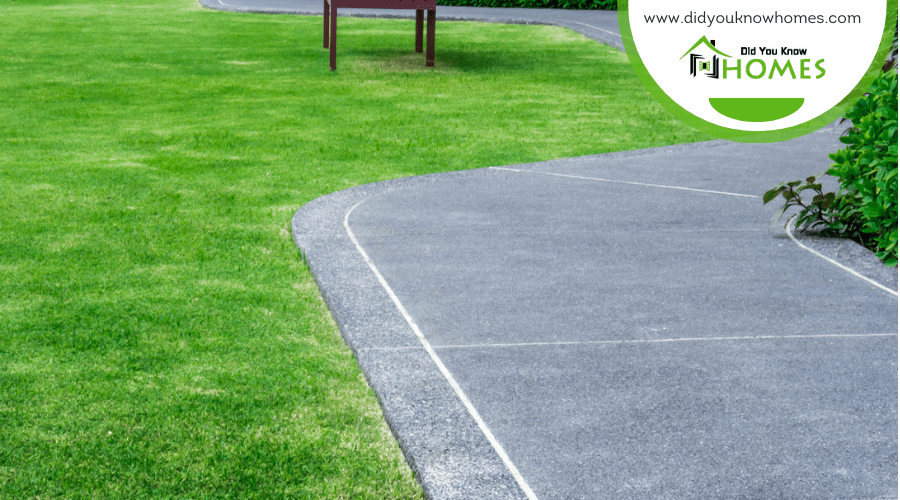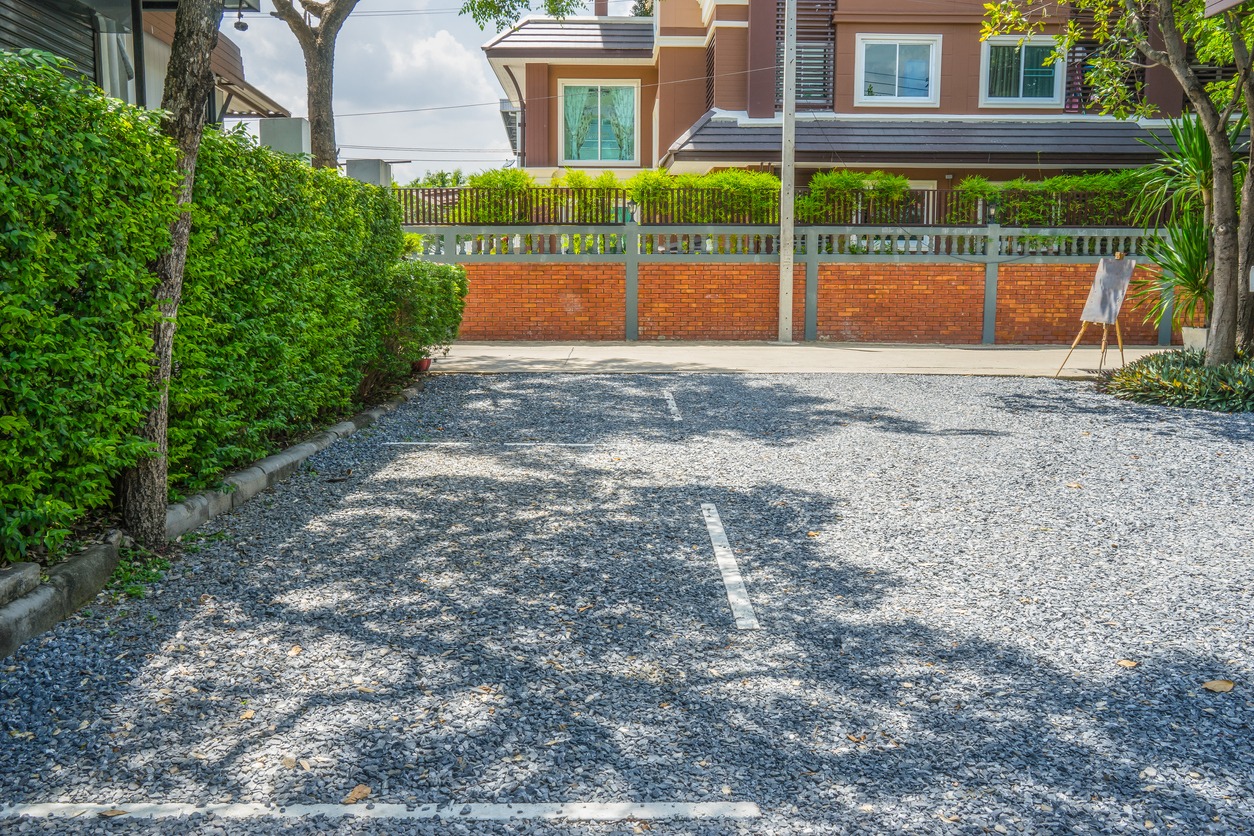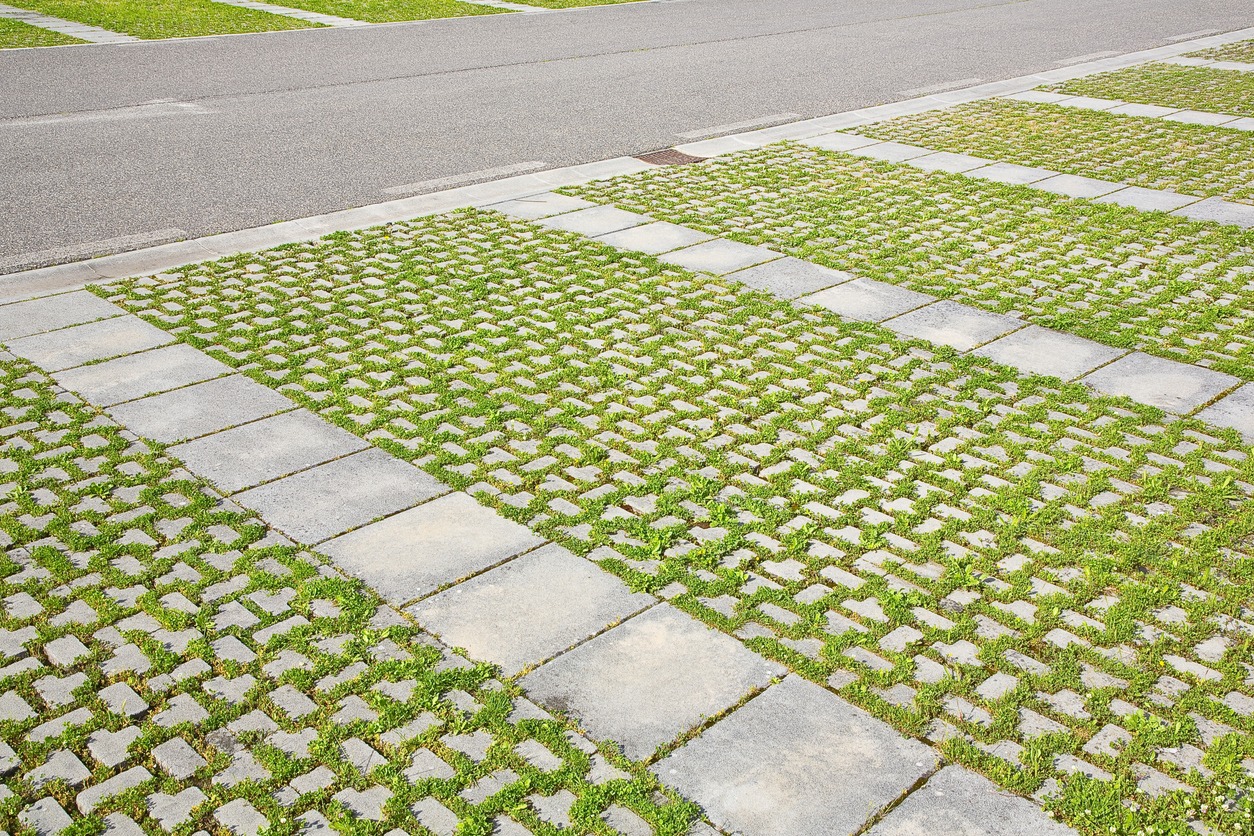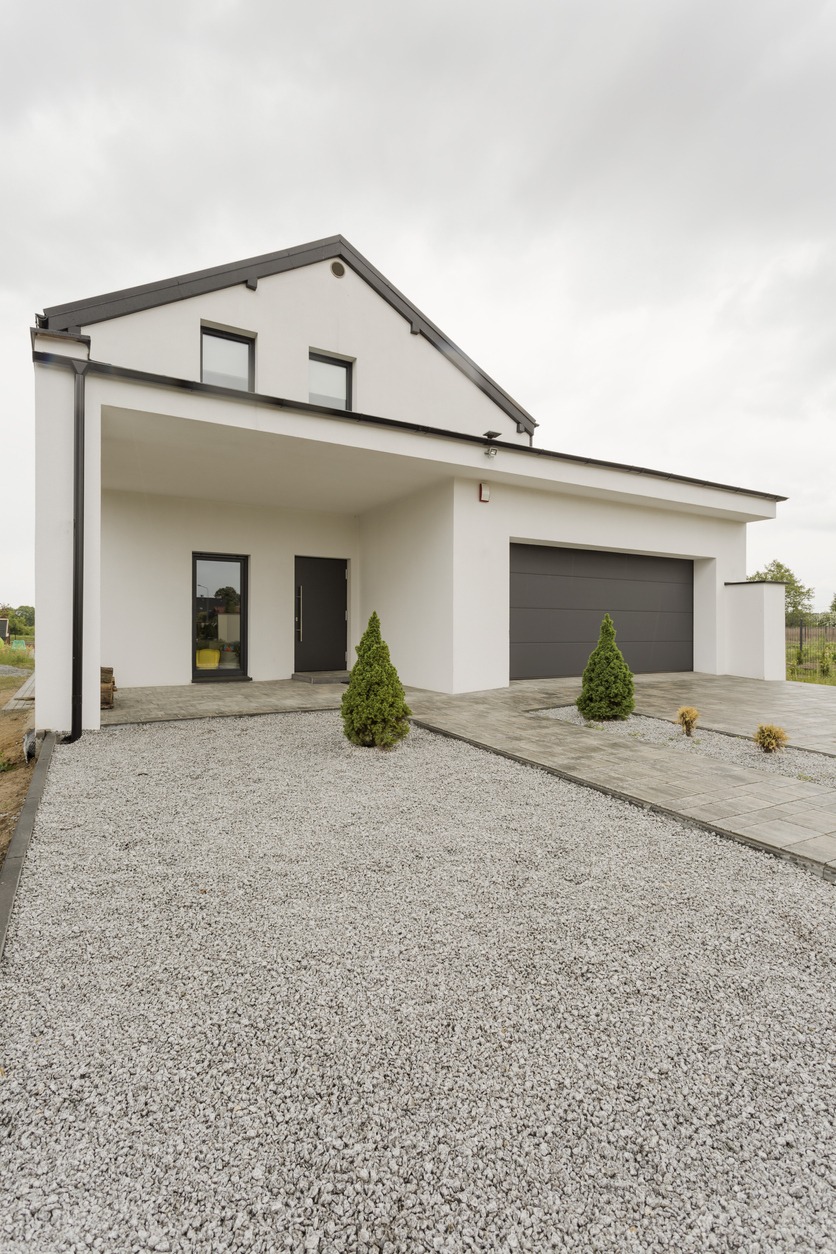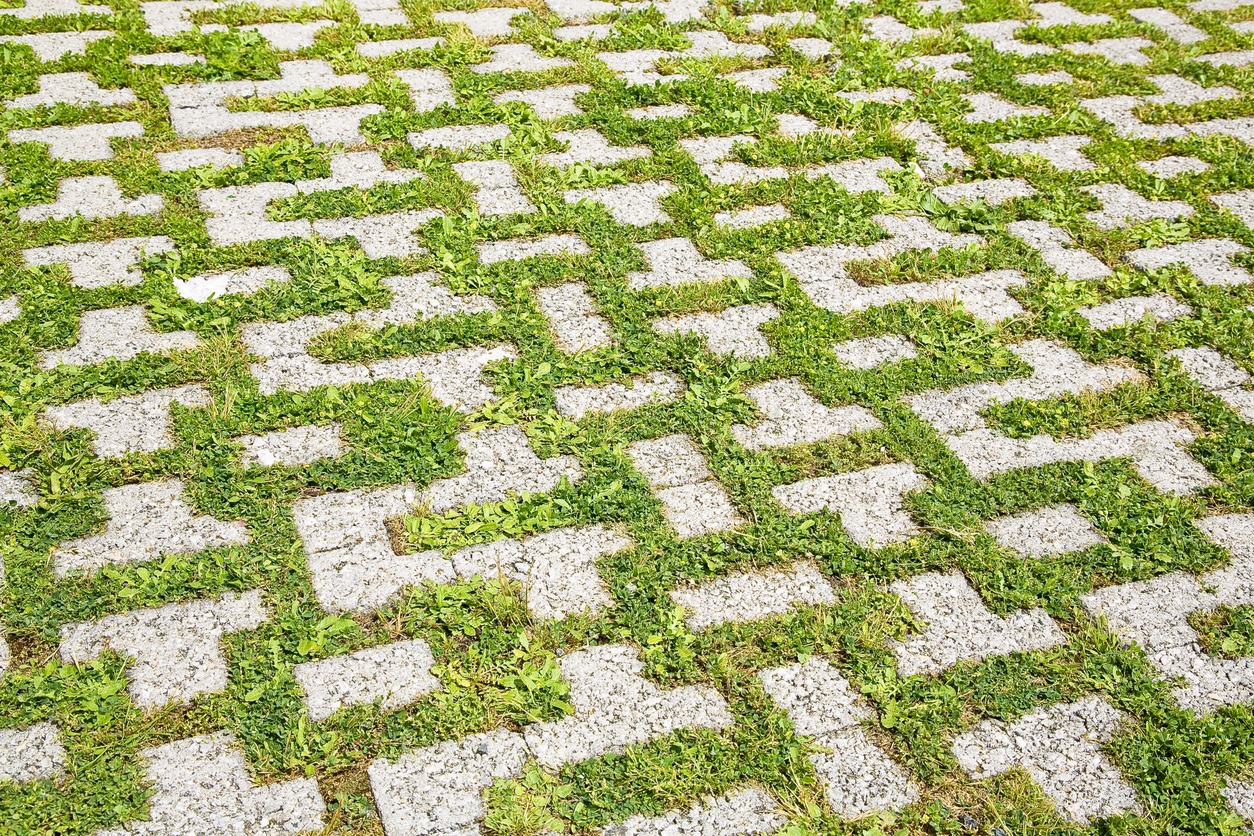Eco-friendly driveways stand at the intersection of sustainability and innovative home improvement, offering a solution that significantly mitigates environmental impact while enhancing property aesthetics. These driveways, utilizing materials such as permeable concrete, pervious asphalt, gravel, grass pavers, and recycled plastic grids, not only support water conservation by allowing natural infiltration but also promise durability and low maintenance. Opting for an eco-friendly driveway translates into a direct contribution to water conservation efforts, reduction of runoff and erosion, and replenishment of local water tables, thereby supporting surrounding ecosystems.
The decision to install an eco-friendly driveway involves careful consideration of material suitability in relation to climate, traffic volume, aesthetic preferences, and budget constraints. This guide aims to navigate homeowners through the benefits, material choices, installation considerations, and the overarching role of eco-friendly driveways in promoting sustainable urban development.
What are eco-friendly driveway options?
Eco-friendly driveway options are innovative solutions aimed at minimizing environmental impact and enhancing sustainability. Among these options are:
- Permeable concrete, which facilitates water passage, significantly reducing runoff and promoting natural water infiltration.
- Pervious asphalt, offering the durability and look of traditional asphalt while allowing water to permeate, thus decreasing water runoff.
- Gravel, providing a rustic aesthetic coupled with effective drainage capabilities.
- Grass pavers, which incorporate green spaces into driveways, blending functionality with environmental benefits.
- Recycled plastic grids, notable for their strength, durability, and permeability.
Each material is chosen for its ability to reduce pollution, conserve water, and enhance the aesthetic appeal of residential spaces through the use of natural and recycled materials. These eco-friendly options represent a commitment to sustainability, offering homeowners a practical way to contribute to environmental protection while upgrading their property.
Case Studies and Examples
- Permeable Concrete: A residential community in Portland, Oregon, installed permeable concrete driveways in over 50 homes. This initiative significantly reduced local flooding issues and improved groundwater quality by filtering runoff. The community reported a 30% decrease in stormwater runoff.
- Pervious Asphalt: The parking lot of the Chesapeake Bay Foundation’s headquarters in Annapolis, Maryland, features pervious asphalt. This choice supports the foundation’s mission to protect the bay by minimizing polluted runoff and promoting natural water filtration.
- Gravel: A farmhouse in upstate New York opted for a gravel driveway to maintain its rustic charm while ensuring effective drainage. The gravel surface has proven durable and low-maintenance, blending seamlessly with the natural landscape.
- Grass Pavers: A public park in San Francisco, California, utilized grass pavers for its parking areas to reduce heat island effect and support urban green spaces. This approach has enhanced the park’s aesthetics and biodiversity, encouraging more visitors while managing rainwater efficiently.
- Recycled Plastic Grids: In Seattle, Washington, a homeowner chose recycled plastic grids for their driveway to support sustainability efforts. The grids, filled with soil and seeded with grass, allow for a green, permeable surface that supports heavy vehicle traffic without compromising on environmental values.
Why consider eco-friendly driveway options?
Opting for eco-friendly driveway options is a significant step toward reducing environmental impact. These driveways are instrumental in:
- Minimizing pollution, by leveraging materials that facilitate natural water infiltration or are sourced from recycled content, thus lessening the ecological footprint of residential spaces.
- Supporting water conservation, as they allow rainwater to percolate into the ground. This not only reduces runoff and erosion but also contributes to the replenishment of local water tables, safeguarding local waterways.
- Enhancing home aesthetics, through the use of natural materials that offer a visually appealing alternative to conventional driveway options.
Beyond their environmental benefits, eco-friendly driveways boast durability and low maintenance requirements, which can lead to long-term savings. Additionally, they can significantly increase property value by boosting curb appeal, making them an attractive investment for homeowners committed to sustainability.
Quantifying the Environmental Impact
- Reduces Environmental Impact by Minimizing Pollution
- Studies have shown that permeable pavement systems can reduce the total runoff of pollutants by up to 95% compared to traditional asphalt or concrete surfaces. This significant reduction in pollutants entering our waterways underscores the environmental benefits of choosing eco-friendly driveway materials.
- Supports Water Conservation by Allowing Natural Infiltration
- According to research, eco-friendly driveways can increase the rate of groundwater recharge by up to 70%, compared to non-permeable surfaces. This enhanced water infiltration not only supports local aquifers but also reduces the demand on municipal stormwater systems.
- Enhances Home Aesthetics with Natural Materials
- A survey conducted by the National Association of Realtors found that homes with eco-friendly features, including permeable driveways, can see an increase in property value by up to 7%. This statistic highlights the aesthetic and financial benefits of opting for sustainable driveway options.
What materials are used in eco-friendly driveways?
Eco-friendly driveways incorporate a range of materials, each selected for its environmental benefits and sustainability. Among these are:
- Permeable concrete, which allows for water to pass through, significantly reducing surface runoff and promoting ground water recharge.
- Pervious asphalt, similar in function to permeable concrete, it facilitates water infiltration, mitigating the issue of runoff and supporting urban water management.
- Gravel, offering not only a rustic aesthetic appeal but also excellent drainage properties, making it an effective solution for managing water runoff.
- Grass pavers, which blend functionality with green living, allowing for areas of greenery within the driveway, thus promoting biodiversity and natural beauty.
- Recycled plastic grids, known for their durability and permeability, represent a robust, sustainable choice, turning recycled materials into functional, eco-friendly surfaces.
Each material contributes to a driveway that is not just visually appealing, but also plays a part in reducing pollution, supporting water conservation, and enhancing the natural aesthetics of the home environment.
To provide readers with actionable insights for making informed decisions, the following table details the sourcing, production process, and specific brands that offer eco-friendly materials:
| Material | Sourcing | Production Process | Specific Brands | Environmental Benefits |
|---|---|---|---|---|
| Permeable Concrete | Locally sourced aggregates | Mixed with a porous composition to allow water permeability | EcoCrete, PerviousCo | Reduces runoff, recharges groundwater |
| Pervious Asphalt | Recycled asphalt, sustainable bitumen | Engineered to have void spaces for water infiltration | PorousPave, EcoAsphalt | Lowers urban heat island effect, reduces runoff |
| Gravel | Natural or recycled aggregates | Minimal processing, sourced from local quarries or recycled materials | GravelTech, EcoGravel | Excellent drainage, low carbon footprint |
| Grass Pavers | Recycled plastic or concrete | Manufactured with open cells for grass growth | GreenPave, Turfstone | Promotes green space, supports biodiversity |
| Recycled Plastic Grids | Post-consumer recycled plastic | Melted and molded into permeable grids | EcoGrid, TrueGrid | Reduces plastic waste, highly durable |
This detailed breakdown helps homeowners understand the eco-friendly attributes of each material, guiding them towards a sustainable choice that aligns with their environmental values and home improvement goals.
How do eco-friendly driveways support water conservation?
Eco-friendly driveways are pivotal in supporting water conservation efforts. By employing materials that allow for natural water infiltration, these driveways significantly reduce the need for artificial irrigation. This not only lessens water usage but also minimizes runoff and erosion, safeguarding local waterways from pollution and sedimentation. Furthermore, the ability of these driveways to replenish local water tables plays a crucial role in maintaining healthy ecosystems. Through the use of permeable concrete, pervious asphalt, and similar materials, eco-friendly driveways offer a sustainable solution to stormwater management, contributing to the overall health of urban and residential areas.
Quantifying Water Conservation Benefits
- Allows Water to Percolate into the Ground, Reducing Need for Irrigation
- Research indicates that eco-friendly driveways can infiltrate up to 80-100% of the rainwater they receive, depending on the material used and the underlying soil conditions. This contrasts sharply with traditional asphalt or concrete driveways, which typically allow less than 10% of rainwater to percolate into the ground.
- Reduces Runoff and Erosion, Protecting Local Waterways
- Studies have shown that implementing permeable surfaces in urban areas can reduce stormwater runoff volumes by up to 90%. This significant reduction in runoff not only helps to protect local waterways from pollution but also mitigates the risk of flooding and erosion.
- Replenishes Local Water Tables, Supporting Ecosystems
- A case study of a community with eco-friendly driveways demonstrated an increase in local groundwater levels by up to 5%, directly contributing to the health and sustainability of nearby ecosystems. This replenishment of local water tables is crucial for maintaining biodiversity and supporting green spaces in urban environments.
What are the benefits of eco-friendly driveways?
Eco-friendly driveways offer a range of benefits that extend beyond mere aesthetics. Firstly, they are durable and long-lasting, requiring minimal maintenance over time. This not only ensures a long-term cost-effective solution but also contributes to less frequent need for repairs or replacements. Furthermore, these driveways increase property value by significantly enhancing curb appeal through the use of attractive, natural materials.
On an environmental level, eco-friendly driveways reduce pollution and support water conservation efforts. By facilitating natural water infiltration, they help in minimizing runoff and erosion, thus protecting local waterways. Additionally, the replenishment of local water tables aids in supporting the health of surrounding ecosystems.
In summary, opting for an eco-friendly driveway represents a sustainable investment that benefits both the homeowner and the environment, aligning with efforts to promote sustainability and reduce ecological footprints.
Comparative Analyses and Cost-Benefit Studies
- Durability and Longevity
- A study conducted by the Sustainable Pavements Program indicated that permeable pavement systems, including eco-friendly driveways, have a lifespan comparable to traditional concrete and asphalt when properly maintained, often exceeding 20 years. The reduced need for replacements translates into significant cost savings over time.
- Low Maintenance
- According to the Environmental Protection Agency (EPA), the maintenance costs for permeable pavement systems are up to 25% lower than those for traditional pavement over a 20-year period. This is due to the reduced need for surface repairs and stormwater management infrastructure.
- Increases Property Value
- A real estate analysis revealed that properties with eco-friendly features, including sustainable driveways, could see an increase in market value by up to 6%. This premium reflects the growing demand for sustainable and aesthetically pleasing home features among buyers.
- Environmental Impact
- Research from the National Environmental Management Authority showed that eco-friendly driveways could reduce surface runoff by up to 90% compared to conventional driveways. This significant reduction in runoff not only aids in water conservation but also decreases the potential for pollution to reach local waterways.
- Water Conservation
- A comparative study highlighted that communities utilizing eco-friendly driveway materials observed a 30% increase in groundwater recharge rates. This enhancement in water conservation efforts is crucial for regions facing water scarcity and supports the overall ecosystem health.
How to choose the right eco-friendly driveway option?
Choosing the right eco-friendly driveway option requires thoughtful consideration of several key factors. Climate and weather patterns are paramount, as they influence the durability and suitability of materials in specific environments. It’s essential to select a material that can endure the local climate to ensure longevity.
Traffic volume is another critical aspect. The material’s strength needs to match the expected load, ensuring it can withstand regular use without significant wear and tear.
Homeowners should also consider their aesthetic preferences, selecting a driveway material that enhances the home’s overall style and appeal. This ensures the driveway not only serves its functional purpose but also contributes positively to the property’s visual appeal.
Lastly, budget considerations play a crucial role. Evaluating both the upfront installation costs and the long-term maintenance expenses is vital for making a cost-effective choice that aligns with the homeowner’s financial planning.
By carefully assessing these factors, homeowners can make an informed decision that balances sustainability, functionality, aesthetics, and budget, ensuring their eco-friendly driveway is a valuable addition to their property.
To assist in this decision-making process, the following detailed checklist or framework can guide homeowners through selecting the most suitable eco-friendly driveway material based on their specific circumstances:
| Factor | Considerations | Questions to Ask Yourself |
|---|---|---|
| Climate and Weather Patterns | Durability under local conditions, resistance to weathering | – Does the material withstand extreme temperatures? – Can it handle heavy rain or snowfall? |
| Traffic Volume | Material strength, wear resistance | – How often will the driveway be used? – Will it need to support heavy vehicles? |
| Aesthetic Preferences | Compatibility with home style, color and texture options | – Does the material complement my home’s exterior? – Are there enough design options? |
| Budget Considerations | Upfront costs, long-term maintenance expenses, potential savings | – What is my budget for the initial installation? – How much maintenance can I afford in the long run? |
This framework is designed to streamline the selection process, ensuring homeowners consider all critical aspects before making their final decision. By answering these questions, individuals can narrow down their options and choose an eco-friendly driveway material that best suits their needs, preferences, and circumstances, contributing to a more sustainable and aesthetically pleasing home environment.
What are the installation considerations for eco-friendly driveways?
Installing an eco-friendly driveway requires attention to several pivotal considerations to ensure its effectiveness and longevity. Proper ground preparation is the cornerstone of a durable driveway, impacting not only its performance but also its ability to withstand various weather conditions. Drainage planning plays a critical role in preventing water accumulation, essential for maintaining the driveway’s integrity and supporting water conservation efforts.
Selecting the right contractor with specialized experience in eco-friendly driveways is crucial. Their expertise ensures that the installation meets both environmental standards and durability expectations. Additionally, understanding the maintenance requirements of different materials is vital. This knowledge helps homeowners choose a driveway option that matches their maintenance capabilities, ensuring the driveway’s long-term health and appearance.
These considerations form the foundation of a successful eco-friendly driveway installation, aligning sustainability goals with practical functionality.
To provide homeowners with a comprehensive overview and actionable insights, the following table details each installation consideration, including a step-by-step guide and common pitfalls to avoid:
| Consideration | Step-by-Step Guide | Common Pitfalls to Avoid |
|---|---|---|
| Proper Ground Preparation | 1. Assess soil type and drainage capability. 2. Remove topsoil and level the area. 3. Compact the base layer to prevent settling. 4. Add a layer of geotextile fabric to separate soil and base material. |
– Skipping soil assessment. – Inadequate compaction leading to settling. – Forgetting the geotextile layer, leading to material mixing. |
| Drainage Planning | 1. Design the driveway with a slight slope for natural water runoff. 2. Install drainage channels or a French drain if necessary. 3. Ensure permeable materials are correctly laid to facilitate drainage. |
– Ignoring the driveway’s slope. – Underestimating water flow, leading to pooling. – Incorrect installation of permeable materials. |
| Choosing the Right Contractor | 1. Look for contractors with specific experience in eco-friendly driveways. 2. Check references and previous projects. 3. Ensure they understand local regulations and material specifications. |
– Choosing a contractor based solely on cost. – Not verifying eco-friendly installation experience. – Lack of clear communication. |
| Maintenance Requirements | 1. Understand the specific care needs of your chosen material. 2. Schedule regular cleaning to prevent clogging and maintain permeability. 3. Repair any damage promptly to prevent worsening. |
– Neglecting regular maintenance. – Allowing debris to accumulate, reducing effectiveness. – Delaying repairs, leading to bigger issues. |
How do eco-friendly driveways contribute to sustainability?
Eco-friendly driveways significantly reduce the carbon footprint by incorporating recycled or natural materials, minimizing the environmental impact traditionally associated with driveway construction. They enhance biodiversity by facilitating water infiltration into the ground, which is crucial for maintaining the health and diversity of local ecosystems.
Moreover, these driveways are integral to sustainable urban development, managing stormwater effectively to decrease runoff and lower the risk of urban flooding. This approach to driveway design not only addresses immediate environmental concerns but also contributes to the long-term sustainability of urban areas.
By choosing eco-friendly driveways, homeowners actively participate in environmental conservation, ensuring their property upgrades align with broader goals of sustainability and ecological responsibility.
Reducing carbon footprint by using recycled materials
Eco-friendly driveways significantly contribute to reducing the carbon footprint by prioritizing the use of recycled materials. This sustainable practice not only helps in diverting waste from landfills but also lessens the environmental burden caused by the extraction and processing of new raw materials, making it a key factor in environmental conservation efforts.
Promoting biodiversity through permeable surfaces
The implementation of permeable surfaces in eco-friendly driveways is essential for promoting biodiversity. These surfaces enable water to naturally infiltrate the ground, replenishing subterranean water levels and fostering a conducive environment for a diverse range of plant and animal life, thereby enhancing the ecological health of the area.
Encouraging sustainable urban development by managing stormwater
Eco-friendly driveways are instrumental in encouraging sustainable urban development through effective stormwater management. By minimizing runoff and reducing the risk of urban flooding, these driveways support a more sustainable and resilient approach to urban planning, contributing positively to the mitigation of climate change impacts on urban infrastructures.
